Ron Keel interview
I recently interviewed vocalist Ron Keel and asked him about Keel, Steeler and what he is currently up to.

MM-What prompted you to pick up and move from Tennessee to LA?
RK: In 1981, my band Steeler was the only hard rock band in Nashville. I hadn’t been to LA, but had a gut feeling that it was where we needed to be - so like a lot of other young rock n roll dreamers at the time, we migrated there in search of the promised land, and damned if we didn’t find it – Hollywood in the early 80’s was like no other place on earth or time in history. The women were hot, the music was hotter, the party never stopped – at least until the 90’s came along.
MM-What were some of the highs and lows of being in Steeler?
RK: There were so many highs – heading west with the original band to follow our dream, all the hard work and fun realizing that dream, holding my first album in my hand, being a part of that legendary time in history in LA in the early 80’s.. There were countless wonderful experiences in that three year period for me, and the only real low point was when I realized it wasn’t going to work and had to move on. Luckily, my next band KEEL hit the ground running and I was fortunate to accomplish a lot of the goals I’d worked so hard to achieve.
MM-Could you have worked for a long time with Yngwie if he had stayed in the band?
RK: I think if we’d have some strong guidance – perhaps in the capacity of a high-powered manager and a big-time producer – we could have. At the time, we were both young, immature, stubborn, and myopic in terms of having our own separate visions and not being smart enough or creative enough to combine our talents. I wanted a classic leather and studs American Metal band, and he wanted to pursue his classical influences, and unfortunately we didn’t work together long enough to figure out how to meet in the middle.
MM-I have heard varying stories about you and Black Sabbath. I understand you had an audition with them around 1984. How did that go and did you get the job or not?
RK: This is a pretty well documented story – I suggest fans visit
https://ccplmail.carr.org/exchweb/bin/redir.asp?URL=http://www.black-sabbath.com/personnel/keel.html
to clarify details of my short tenure with Black Sabbath in 1984.
MM-How did Keel land a major label deal so quickly?
RK: I put the band together in March ’84, did our first gig in April, and it just exploded. That first show had 1700 Keelaholics and we never looked back from there, building a buzz and a reputation that couldn’t be denied. By summertime, we were working on our first album “Lay Down The Law” in northern California when our management called us back to LA for a round of showcases; Burt Stein from Gold Mountain/A&M Records liked what he saw and pretty much signed us on the spot. We went ahead with finishing “Lay Down The Law”, and almost immediately after that we were in the studio with Gene Simmons recording “The Right To Rock”, which came out in January 1985. So within 10 months of forming, we had two albums out and were on the charts and on tour.
MM-What was it like working with Gene Simmons when he was producing albums for you?
RK: When we got the record deal, they gave me a list of potential producers – some of the hottest names in rock at the time – but the only one that caught my eye was Gene’s. I thought it would be awesome to work with him, and it was – he really took us under his wing, worked extremely hard for us in and out of the studio, taught me a lot. By working with him, KEEL became a small thread in the history of KISS and for that I’ll be forever grateful. Gene was great with songs, melodies, harmonies, and generating powerful tracks in the studio – plus he was always surrounded by beautiful women.
MM-Keel seemed to be getting more popular with the self-titled release. Why didn’t you get any bigger after that?
RK: That’s not the case. KEEL peaked with “The Final Frontier”, which was so strong and such an epic 80’s rock album that nobody really wanted that self-titled album. We were touring with Bon Jovi and Motley Crue, and fans were coming up to us with copies of “The Right To Rock” and “The Final Frontier” for us to autograph – nobody was buying the new record. I believe part of the problem was the choice of the debut single, “Somebody’s Waiting”, and also the fact that there was never a second single to help lift that release to the next plateau. The bottom line is, MCA Records – whom we were signed to at the time – made a lot of the wrong moves. Maybe I made some wrong moves myself. But I know that was a great album, and the band was tearing it up on stage opening for bands like Bon Jovi and Crue, and that album did not get a fair shake.
MM-You had a band called Fair Game that was you and four female musicians. I remember the band getting some mentions in the metal magazines. Why do you think you didn’t get signed back then?
RK: Between 1990 and 1992, when I was trying to cultivate the Fair Game project, rock music was undergoing a transition – and most 80’s artists like myself either couldn’t see it, or we were in denial. You gotta realize, while 80’s metal was ruling the world, we all though it would last forever – nobody dreamed that it would burn itself out and be replaced by grunge. Fair Game was a great band – some of the best vocals and songs of my career, with a killer band of hot female musicians behind me. I thought it was an awesome concept, but the fact that female acts are generally considered unstable and the fact that we were playing melodic hard rock with great hooks and and great musicianship led to our demise.
MM-What prompted you to call yourself Ronnie Lee Keel and start doing country music in the 1990’s?
RK: The end of the era hit most of us pretty hard – you had to be Aerosmith, Van Halen, or Bon Jovi to survive. Most of the bands that are reunited and touring now were in shambles in the early 90’s after the industry, and many of the audience, turned their backs on us. I lost my record deal, my house, my stuff…underwent a traumatic period in my family life…and it was a long hard fall. Country Music gave me a soft place to land – without all the glitz and gloss, you strip everything down and what you’re left with is words and music. Country gave me the opportunity to express myself, to sing about real life, heartbreak, love, drinkin’ & cheatin’ – and those kind of songs just started pouring out of me.
My father had played country music, it had a very strong presence in my house when I was growing up. It truly has to come from the heart – you can’t just put on a hat and ‘become’ country, you gotta have it in you. And the country scene in the 90’s was very similar to the metal scene in the 80’s – there were a lot of opportunities, I did some great gigs across America and Europe, the musicians were world class, the audiences were great, the women were hot, and the songs really say something that most everybody can identify with if they give it a chance.
MM-You have a double CD out called Ron Keel-The Ultimate Collection which spans your career from Lust in 1980 up to last year. What has been the response to that album so far?
RK: I have a great loyal fan base that has been waiting as long as I have for my two latest projects – The Ultimate Collection Double CD, with 30 of my favorites and fan favorites from throughout my career – my very first rock recording, rare and unreleased material, a little bit of everything. And the companion DVD, The Ultimate Video Collection which also has a lot of rare and unreleased footage. Both of these projects have been a real labor of love for me – and while the response so far has been great, it’s way to early - the intention of these releases is to compile my life’s work into one comprehensive package, and for me, my fans, friends, and family to have something to show for all the years and all I’ve done.
MM-What are you currently doing in your music career?
RK: I am producing my own Las Vegas show, in the Events Center Showroom at Fitzgerald's Hotel & Casino – which is really a dream come true, how many people ever get to produce their very own Vegas show? It’s called “Country Superstars Tribute”, and is a live country concert event featuring a killer band and celebrity impersonators paying tribute to Brooks & Dunn, Shania Twain, Toby Keith, Garth Brooks, Tim McGraw and Faith Hill. In addition to playing the role of Ronnie Dunn from Brooks & Dunn in the show, I am involved in all aspects from promotion and marketing to accounting, I am the musical director, you name it, I have my fingers in it. I am also expanding my company, Keel Entertainment, into booking other acts and artists and I’m moving more into the business side of things while still performing at least 20 shows a month.
On the rock front, in addition to my new CD and DVD releases, I have just finished work on a couple of tribute albums for Versailles Records – I sang “Lick It Up” for their upcoming KISS tribute which was a real honor for me after having worked with Gene and my history with them. I also sang “Don’t Cry” for their new Guns N Roses tribute, which came out absolutely amazing – what a great song, we treated it as a haunting piano ballad with Robby Cantor on piano. We have the forthcoming release of KEEL’s debut album “Lay Down The Law” on CD for the first time. As far as performing rock, I recently sang at the opening of Vegas’ killer new club Rox and I’m planning some more rock and acoustic dates as my schedule will permit.
MM-Any regrets in your music career?
RK: Everyone has regrets, things they would’ve done different if they could do it again. I look back on the last 30 years as one wonderful wild ride, I’ve enjoyed it immensely and I’m very proud of what I’ve accomplished. I’ve worked my ass off, partied my ass off, been loved and hated, and when it’s time for me to check out I’ll leave behind some music and some memories. I don’t have time for regrets – I have a show tonight.
Thanks to Ron for doing this interview. You can check out his site here.
http://ronniekeel.tripod.com/
Check out his Myspace page here.
http://myspace.com/ronkeel

MM-What prompted you to pick up and move from Tennessee to LA?
RK: In 1981, my band Steeler was the only hard rock band in Nashville. I hadn’t been to LA, but had a gut feeling that it was where we needed to be - so like a lot of other young rock n roll dreamers at the time, we migrated there in search of the promised land, and damned if we didn’t find it – Hollywood in the early 80’s was like no other place on earth or time in history. The women were hot, the music was hotter, the party never stopped – at least until the 90’s came along.
MM-What were some of the highs and lows of being in Steeler?
RK: There were so many highs – heading west with the original band to follow our dream, all the hard work and fun realizing that dream, holding my first album in my hand, being a part of that legendary time in history in LA in the early 80’s.. There were countless wonderful experiences in that three year period for me, and the only real low point was when I realized it wasn’t going to work and had to move on. Luckily, my next band KEEL hit the ground running and I was fortunate to accomplish a lot of the goals I’d worked so hard to achieve.
MM-Could you have worked for a long time with Yngwie if he had stayed in the band?
RK: I think if we’d have some strong guidance – perhaps in the capacity of a high-powered manager and a big-time producer – we could have. At the time, we were both young, immature, stubborn, and myopic in terms of having our own separate visions and not being smart enough or creative enough to combine our talents. I wanted a classic leather and studs American Metal band, and he wanted to pursue his classical influences, and unfortunately we didn’t work together long enough to figure out how to meet in the middle.
MM-I have heard varying stories about you and Black Sabbath. I understand you had an audition with them around 1984. How did that go and did you get the job or not?
RK: This is a pretty well documented story – I suggest fans visit
https://ccplmail.carr.org/exchweb/bin/redir.asp?URL=http://www.black-sabbath.com/personnel/keel.html
to clarify details of my short tenure with Black Sabbath in 1984.
MM-How did Keel land a major label deal so quickly?
RK: I put the band together in March ’84, did our first gig in April, and it just exploded. That first show had 1700 Keelaholics and we never looked back from there, building a buzz and a reputation that couldn’t be denied. By summertime, we were working on our first album “Lay Down The Law” in northern California when our management called us back to LA for a round of showcases; Burt Stein from Gold Mountain/A&M Records liked what he saw and pretty much signed us on the spot. We went ahead with finishing “Lay Down The Law”, and almost immediately after that we were in the studio with Gene Simmons recording “The Right To Rock”, which came out in January 1985. So within 10 months of forming, we had two albums out and were on the charts and on tour.
MM-What was it like working with Gene Simmons when he was producing albums for you?
RK: When we got the record deal, they gave me a list of potential producers – some of the hottest names in rock at the time – but the only one that caught my eye was Gene’s. I thought it would be awesome to work with him, and it was – he really took us under his wing, worked extremely hard for us in and out of the studio, taught me a lot. By working with him, KEEL became a small thread in the history of KISS and for that I’ll be forever grateful. Gene was great with songs, melodies, harmonies, and generating powerful tracks in the studio – plus he was always surrounded by beautiful women.
MM-Keel seemed to be getting more popular with the self-titled release. Why didn’t you get any bigger after that?
RK: That’s not the case. KEEL peaked with “The Final Frontier”, which was so strong and such an epic 80’s rock album that nobody really wanted that self-titled album. We were touring with Bon Jovi and Motley Crue, and fans were coming up to us with copies of “The Right To Rock” and “The Final Frontier” for us to autograph – nobody was buying the new record. I believe part of the problem was the choice of the debut single, “Somebody’s Waiting”, and also the fact that there was never a second single to help lift that release to the next plateau. The bottom line is, MCA Records – whom we were signed to at the time – made a lot of the wrong moves. Maybe I made some wrong moves myself. But I know that was a great album, and the band was tearing it up on stage opening for bands like Bon Jovi and Crue, and that album did not get a fair shake.
MM-You had a band called Fair Game that was you and four female musicians. I remember the band getting some mentions in the metal magazines. Why do you think you didn’t get signed back then?
RK: Between 1990 and 1992, when I was trying to cultivate the Fair Game project, rock music was undergoing a transition – and most 80’s artists like myself either couldn’t see it, or we were in denial. You gotta realize, while 80’s metal was ruling the world, we all though it would last forever – nobody dreamed that it would burn itself out and be replaced by grunge. Fair Game was a great band – some of the best vocals and songs of my career, with a killer band of hot female musicians behind me. I thought it was an awesome concept, but the fact that female acts are generally considered unstable and the fact that we were playing melodic hard rock with great hooks and and great musicianship led to our demise.
MM-What prompted you to call yourself Ronnie Lee Keel and start doing country music in the 1990’s?
RK: The end of the era hit most of us pretty hard – you had to be Aerosmith, Van Halen, or Bon Jovi to survive. Most of the bands that are reunited and touring now were in shambles in the early 90’s after the industry, and many of the audience, turned their backs on us. I lost my record deal, my house, my stuff…underwent a traumatic period in my family life…and it was a long hard fall. Country Music gave me a soft place to land – without all the glitz and gloss, you strip everything down and what you’re left with is words and music. Country gave me the opportunity to express myself, to sing about real life, heartbreak, love, drinkin’ & cheatin’ – and those kind of songs just started pouring out of me.
My father had played country music, it had a very strong presence in my house when I was growing up. It truly has to come from the heart – you can’t just put on a hat and ‘become’ country, you gotta have it in you. And the country scene in the 90’s was very similar to the metal scene in the 80’s – there were a lot of opportunities, I did some great gigs across America and Europe, the musicians were world class, the audiences were great, the women were hot, and the songs really say something that most everybody can identify with if they give it a chance.
MM-You have a double CD out called Ron Keel-The Ultimate Collection which spans your career from Lust in 1980 up to last year. What has been the response to that album so far?
RK: I have a great loyal fan base that has been waiting as long as I have for my two latest projects – The Ultimate Collection Double CD, with 30 of my favorites and fan favorites from throughout my career – my very first rock recording, rare and unreleased material, a little bit of everything. And the companion DVD, The Ultimate Video Collection which also has a lot of rare and unreleased footage. Both of these projects have been a real labor of love for me – and while the response so far has been great, it’s way to early - the intention of these releases is to compile my life’s work into one comprehensive package, and for me, my fans, friends, and family to have something to show for all the years and all I’ve done.
MM-What are you currently doing in your music career?
RK: I am producing my own Las Vegas show, in the Events Center Showroom at Fitzgerald's Hotel & Casino – which is really a dream come true, how many people ever get to produce their very own Vegas show? It’s called “Country Superstars Tribute”, and is a live country concert event featuring a killer band and celebrity impersonators paying tribute to Brooks & Dunn, Shania Twain, Toby Keith, Garth Brooks, Tim McGraw and Faith Hill. In addition to playing the role of Ronnie Dunn from Brooks & Dunn in the show, I am involved in all aspects from promotion and marketing to accounting, I am the musical director, you name it, I have my fingers in it. I am also expanding my company, Keel Entertainment, into booking other acts and artists and I’m moving more into the business side of things while still performing at least 20 shows a month.
On the rock front, in addition to my new CD and DVD releases, I have just finished work on a couple of tribute albums for Versailles Records – I sang “Lick It Up” for their upcoming KISS tribute which was a real honor for me after having worked with Gene and my history with them. I also sang “Don’t Cry” for their new Guns N Roses tribute, which came out absolutely amazing – what a great song, we treated it as a haunting piano ballad with Robby Cantor on piano. We have the forthcoming release of KEEL’s debut album “Lay Down The Law” on CD for the first time. As far as performing rock, I recently sang at the opening of Vegas’ killer new club Rox and I’m planning some more rock and acoustic dates as my schedule will permit.
MM-Any regrets in your music career?
RK: Everyone has regrets, things they would’ve done different if they could do it again. I look back on the last 30 years as one wonderful wild ride, I’ve enjoyed it immensely and I’m very proud of what I’ve accomplished. I’ve worked my ass off, partied my ass off, been loved and hated, and when it’s time for me to check out I’ll leave behind some music and some memories. I don’t have time for regrets – I have a show tonight.
Thanks to Ron for doing this interview. You can check out his site here.
http://ronniekeel.tripod.com/
Check out his Myspace page here.
http://myspace.com/ronkeel
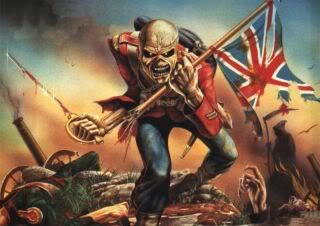

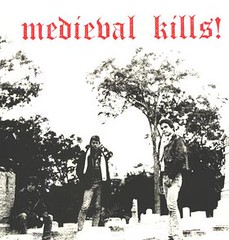
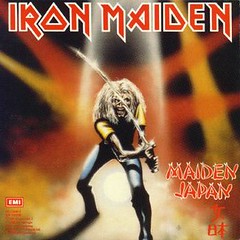
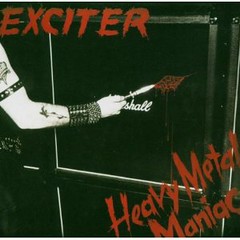
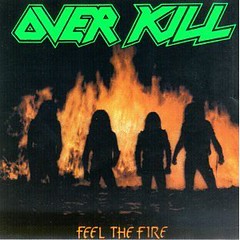
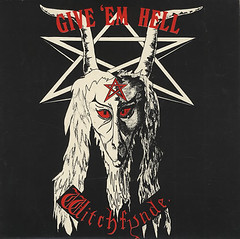
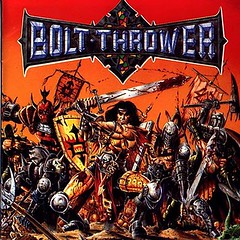
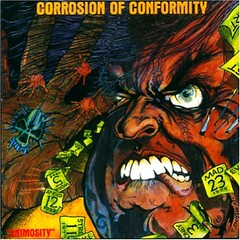
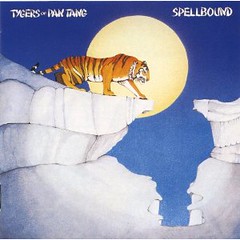
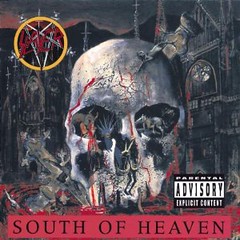

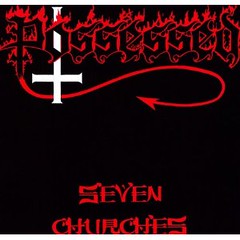
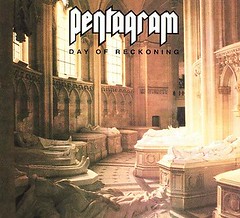
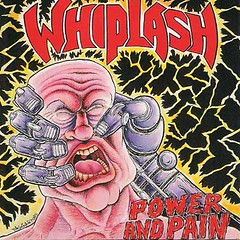
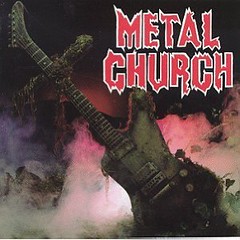
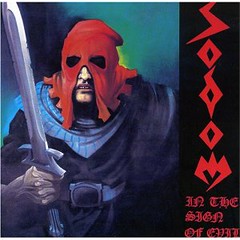
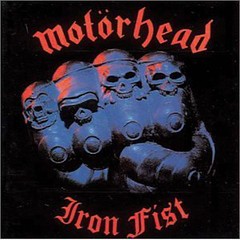

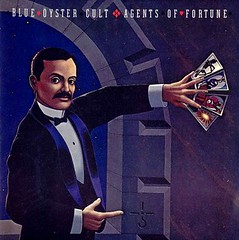
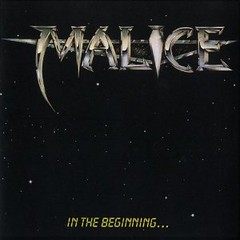
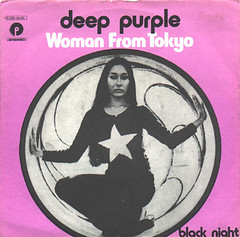
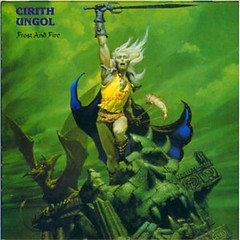
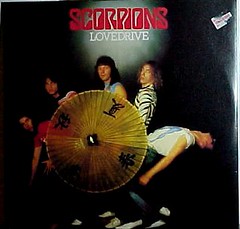
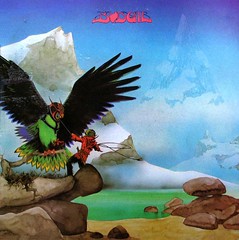
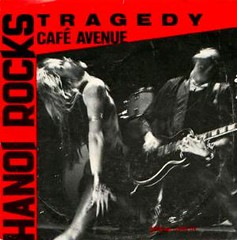
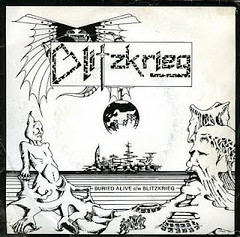
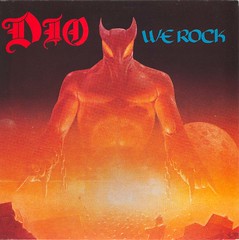

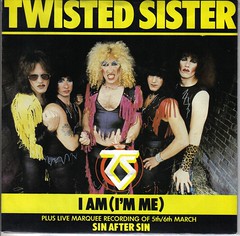
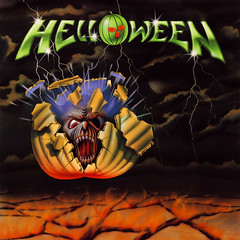
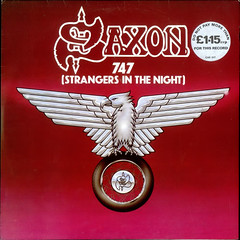
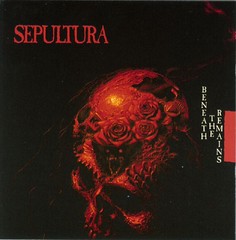
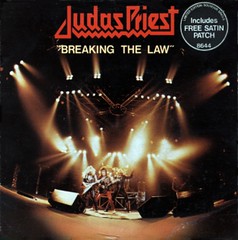
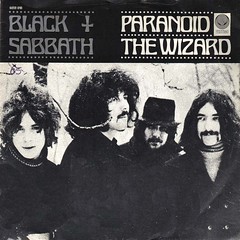
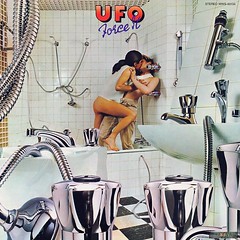
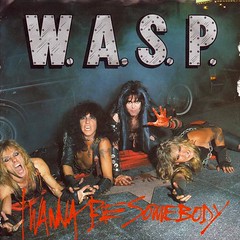
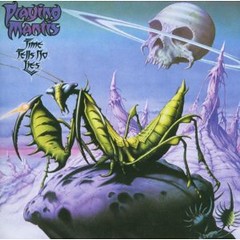

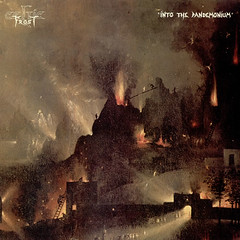
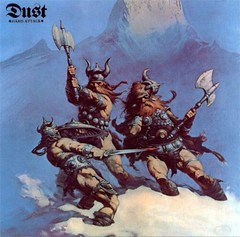

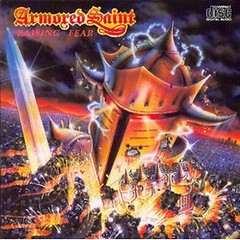
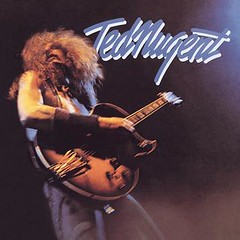
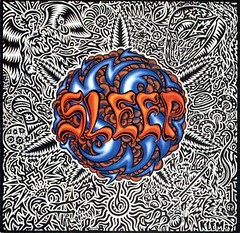
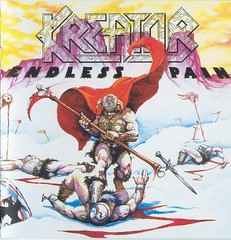
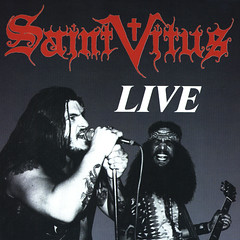
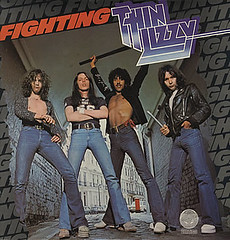

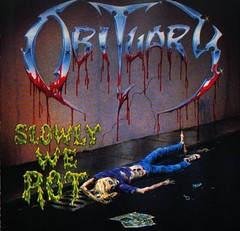
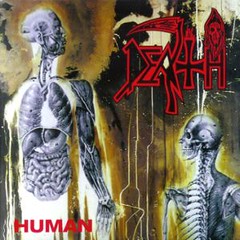



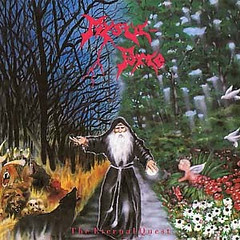








8 Comments:
Interesting interview Mark.
Nicely done--it covers all the big issues ... and he didn't seem to get snarky at answering the fundamental questions!
-- david
Very cool interview Mark. Nice job.
Hi Mark,
Good interview. I really like the question about the name change and switching to country.
Interviews are a ton of work, aren't they?
Allyson B. Crawford
www.bringbackglam.com
HRH-Thanks.
David-Glad you enjoyed it.
Axe Man-Thank you.
Allyson-They are certainly more difficult than doing reviews. You only have so much control with interviews.
This interview has also been posted
over at Pivotal Alliance under their interviews section.
http://webzine.pivotalalliance.com/
There was a band called Steeler? How did I not know this???
Nice interview!
beckeye-There's actually two bands called Steeler. the one with Ron Keel and Yngwie Malmsteen and one that was from Germany.
Yeah, the german STEELER was with AXEL RUDI PELL. Great interview mark, realy nice to read about RON KEEL past. Thankssssss.
Post a Comment
Subscribe to Post Comments [Atom]
<< Home